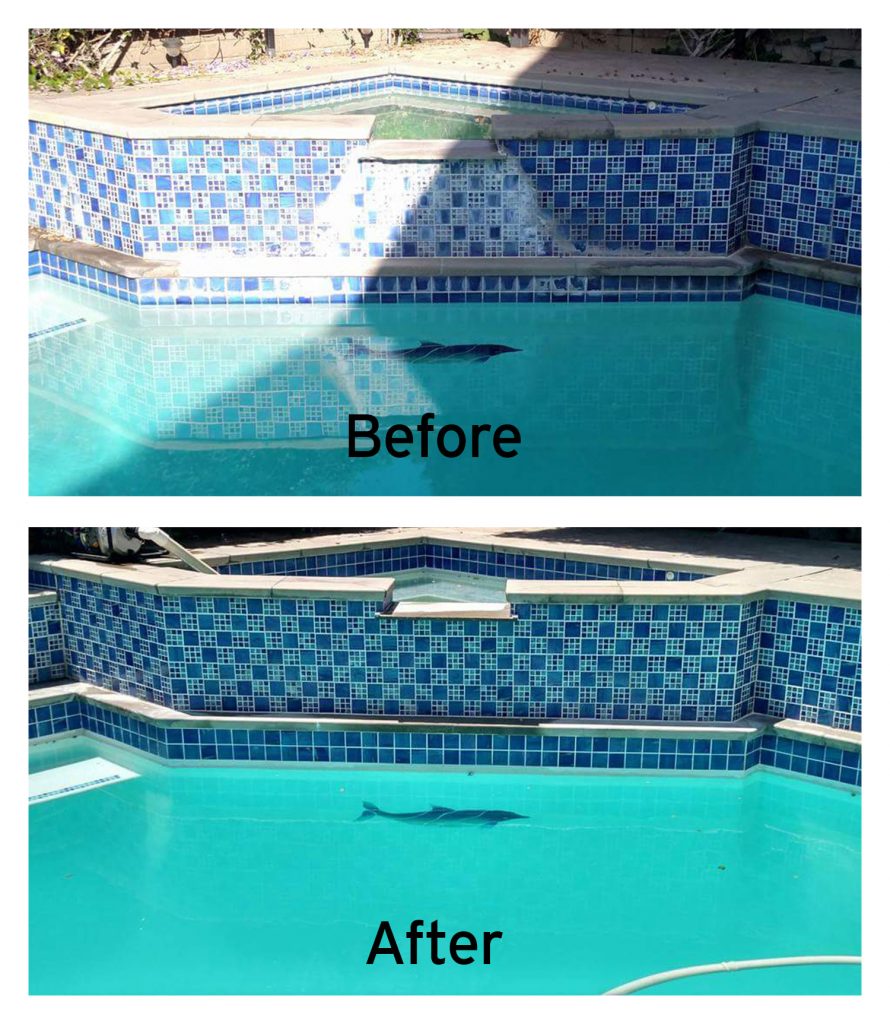A swimming pool is a luxurious addition to any home that can provide endless entertainment and relaxation. However, with great pleasure comes great responsibility. Proper maintenance is essential for keeping your pool safe, clean, and enjoyable for years to come. Incorporating swimming pool maintenance tips into your routine can help prevent costly repairs, algae growth, and even health hazards. Neglecting your pool can lead to these issues, making it crucial to stay on top of maintenance tasks.
A great pool maintenance schedule’s number one goal is to keep your pool clean and healthy. Incorporating swimming pool maintenance tips into your routine ensures that it stays sparkling all year long. It keeps the pool looking so great week in and out — an absolute delight to you, the pool owner.
The most common solution to achieve this is a regular treatment of the pool water to remove lime and debris.

The wrong dosage of cleaning products can lead to the accumulation of several layers of limestone on the walls and in the pool’s bottom. To remove this debris, you need to understand everything that can make them appear. Incorporating swimming pool maintenance tips can help ensure the right balance of chemicals, preventing the buildup of unwanted residue and keeping your pool in optimal condition.
The Importance of Chlorine for the Pool Maintenance
Chlorine is the first choice for maintaining healthy pool water. Chlorine has been used for years in swimming pools around the world. It is a highly reactive chemical that reacts with all kinds of biological impurities in water. For those looking to enhance their pool care routine, swimming pool maintenance tips such as proper chlorine levels and regular checks can help maintain clean and safe water for swimming.
If these organic impurities are not treated with care, bacteria can develop algae or even a bio-film.
What Happens if a Swimming Pool is not Well-balanced?
If the pool water has a high calcium hardness or other debris, this can cause technical problems, such as fouling or lime in the pipes and in the pool itself. As a result, the maintenance and cleaning of the pool will increase. If the supply water is very hard, large amounts of lime can deposit on the sides of the pool.
Even if there is only a little calcium carbonate in the water, and following an unbalanced addition of chlorine and pH, lime will form at the level of the evaporation line of the water as well as on the pool walls. These lime deposits at the edge of the pool are often difficult to remove and involve manual work. To prevent this, following proper swimming pool maintenance tips can help keep your pool water balanced and minimize the buildup of calcium and lime.
Water Filtration Rings: Less Effort, Less Cost
Compared to the maintenance consequences described above, the solutions seem incredibly simple.
The main configuration of a swimming pool is always the same. There is a filter system, a pump, and maybe a heating element, that’s all. When it comes to swimming pool maintenance tips, regular care of these elements will ensure optimal performance and longevity.
In accordance with the size of the pool, you must install a ring at the freshwater supply line and another ring in the circulation line. In the case of a large public swimming pool, install in the circulation line of each swimming pool to get the same results in all swimming pools.
What’s the result of Pool Maintenance?
In case of calcium hardness, the ring keeps the dissolved calcium in the pool water, which will have a more fluid texture. Over time, the pool water will be much softer, despite the calcium. This is one of the key swimming pool maintenance tips to ensure the water remains in great condition.
Less crust will form on the evaporation line, and limestone debris will be much easier to remove. When you use these filters and rings, you are also fighting the growth of algae in the pool.
Many owners have stopped using chemicals since the installation of these rings.
No chlorine or other pool chemicals. Without having problems with water quality.
I would not recommend such a thing for a public pool. If countless visitors use this pool, the risk would be too great. I am sure the regulatory authorities would not agree.
However, it is preferable to use these rings even for public swimming pools in order to reduce maintenance costs for protecting pipes or walls of the swimming pool. By doing this, you will need a lot less chlorine to disinfect the water than before while maintaining the same quality of water.
Frequently Asked Questions
Why are swimming pool maintenance tips important?
Swimming pool maintenance tips are essential for keeping your pool clean, safe, and functional. Regular maintenance prevents costly repairs, algae growth, and health hazards while ensuring a sparkling and inviting swimming environment.
How often should I clean my pool using swimming pool maintenance tips?
Following proper swimming pool maintenance tips, you should clean your pool at least once a week. This includes skimming debris, brushing walls, vacuuming, and checking chemical levels to maintain balanced water quality.
What is the role of chlorine in swimming pool maintenance tips?
Chlorine plays a crucial role in swimming pool maintenance tips as it helps eliminate bacteria, algae, and other organic impurities. Maintaining proper chlorine levels ensures clean and healthy water for swimming.
How do swimming pool maintenance tips help prevent calcium buildup?
Swimming pool maintenance tips recommend balancing water chemistry, using water filtration rings, and regularly testing calcium hardness to prevent lime deposits on pool walls, pipes, and the evaporation line.
What happens if I neglect swimming pool maintenance tips?
Ignoring swimming pool maintenance tips can lead to cloudy water, algae growth, clogged filters, and equipment damage. It may also increase maintenance costs and require more chemicals to restore water quality.



